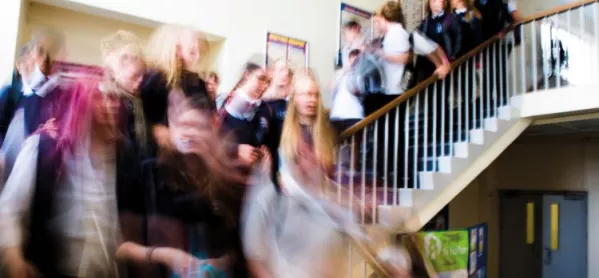Although I’ve been a primary headteacher for a decade and have been working in education for over a quarter of a century, it wasn’t until my own children started at secondary school that I really considered what’s distinctive about Key Stage 3 and what the phase contributed towards a child’s education.
Before thinking about what KS3 is for, it’s important to consider what education, broadly, is for. In my career, one of the best answers I’ve heard is that education has three main purposes: socialisation, qualification and the process of becoming an individual (which some termed “subjectification”). These three purposes of education generally blend together in schools but, at certain phases, one may become more of a focus than the others. For example, qualification - the purpose of providing children with knowledge, skills and understanding - is the primary concern of KS4, while socialisation would form a greater part of the work of early years education. Perhaps, then, a focus for KS3 could be the education of “the individual”.
During the time that my children were in KS3, they would often ask questions such as: “What’s the point of school?”, “Why do we need to work for a living?” and “What is the meaning of life?”. These questions were usually raised on a Sunday afternoon when homework was due to be done but, joking aside, it is at this time of life that many children really begin to consider these type of questions.
A key part of the role of KS3 should be in helping children to attempt to answer some of life’s important questions before they begin their studies for GCSEs. Otherwise, as my son would say, “What’s the point?”.
KS3 should focus on helping children to develop who they are as individuals and their understanding of what they want from their futures. Perhaps meeting the aim of helping children to develop a sense of identity would better prepare children for the next stage of their education, where the focus on “qualification” inevitably takes precedence.
For me, the ideal vehicles for personal exploration are the arts and the humanities, and it is shocking to me how, due to various pressures on our education system, it is these very curriculum areas, particularly the arts, that have recently been neglected in some schools. A well-resourced careers service working with children throughout KS3 would also add to helping children consider what they want out of education before the exam pressures take over.
I am hopeful that with Ofsted making a school’s curriculum the “central focus” of its new framework, more educators will consider how a broad and balanced curriculum contributes to developing the individual. Perhaps this is even more important for those working with children in KS3.
Paul Gosling is the headteacher of Exeter Road Community Primary School

